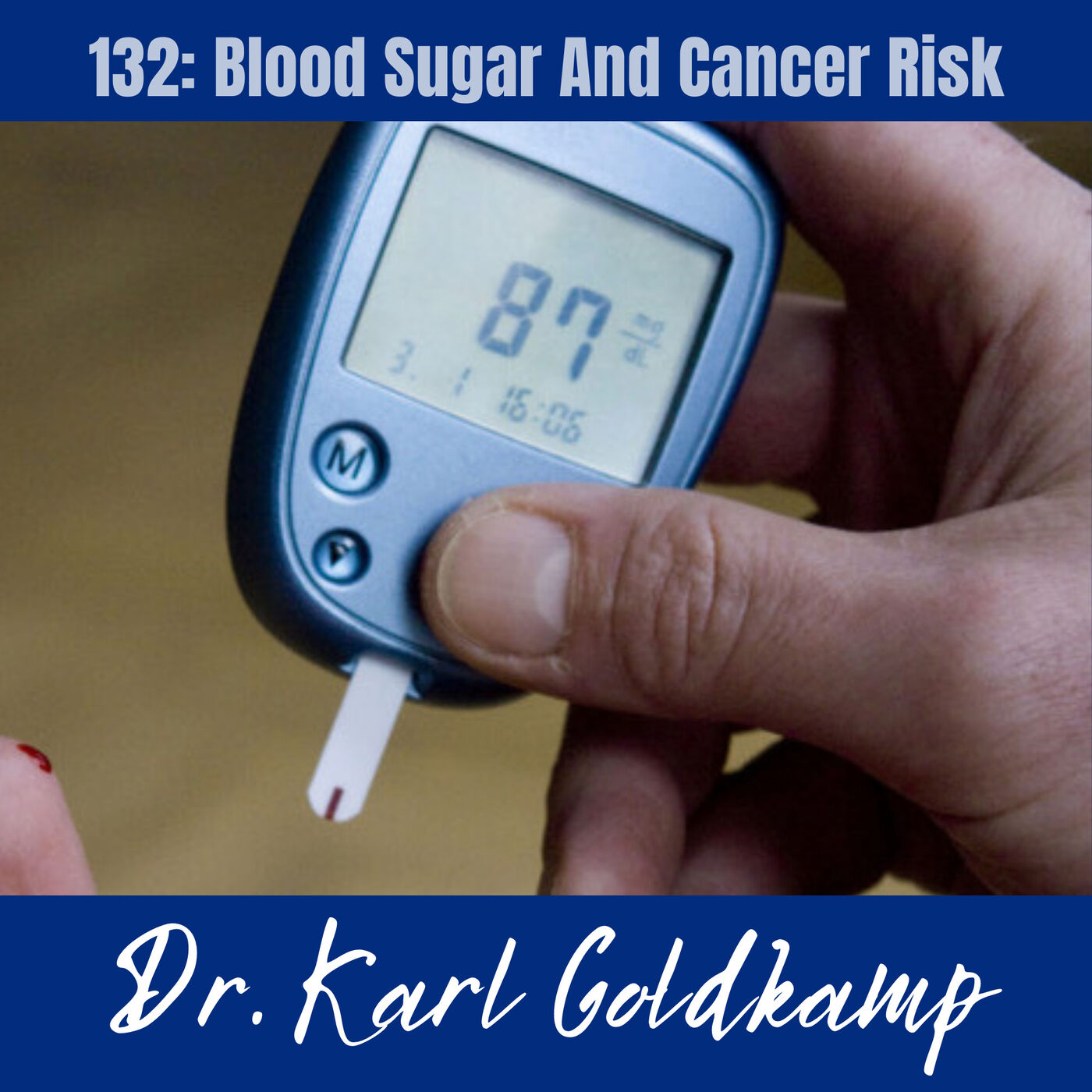132: Blood Sugar And Cancer Risk

By now, most people know that cancer is a metabolic disease that thrives on glucose. What people don’t know is that having elevated fasting glucose levels is directly associated with a risk of cancer. So, the higher the glucose levels are, the more likely the risk of getting cancer is. The surprising thing about that is that it has nothing to do with being overweight or obese.
Today, Dr. Goldkamp will share some studies to illustrate that having chronically high blood sugar and glucose levels is an independent risk factor for getting cancer. He will also discuss the risk of non-overweight people with sustained elevated blood sugar and give a foundational understanding of why you need to be in tune with your blood sugar levels.
Glucose Ketone Index
When you measure your blood sugar and your ketones, and you put the two together, you get the glucose ketone index. The glucose ketone index has started being used in the last year or two for cancer patients to see where they are.
Removing glucose from the body with ketosis
If a cancer patient goes onto a ketogenic diet adjunctively and goes into permanent ketosis for some time, they will be able to remove as much glucose as possible from their body.
Starving and destroying cancer
Removing the glucose will give the cancer nothing to feed on, and ketones are directly destructive of cancer.
Fasting glucose levels
Most people don’t know what their fasting glucose levels are. Nor do they know what their numbers should be, how often they should test, or how to recognize a pattern.
Diabetes
Three random checks of blood sugar (not fasting) of over 126 will result in a diagnosis of type-two diabetes.
A prospective study
In 2005, a prospective study exploring the relationship between people’s blood sugar levels and the risk for developing cancer concluded that elevated fasting glucose levels and diabetes are risk factors for several cancers. And the higher the fasting glucose levels, the higher the risk.
How sustained elevated glucose levels affect the pancreas
If you have sustained elevated glucose levels, it forces your pancreas to manufacture and secrete insulin for extended periods. Your pancreas will become exhausted and start to wear out, and it will not be able to give you the insulin you require. Your blood sugar will then get even higher and possibly even go out of control.
A conclusion to a study
A conclusion to one of the studies revealed that fasting glucose levels and diabetes are also associated with cancer risk in a population that was leaner than populations in other studies. Those associations did not reflect an association with obesity.
Find out what your glucose levels are
Dr. Goldkamp urges you to track your blood sugar. So, go and find out what your glucose and insulin levels are, and assess your risk, even if you’re not overweight. Your results might show that you need to implement some lifestyle changes.
Links:
JAMA Reference Article
Join Our Facebook Group Keto Naturopath
Subscribe to our YouTube Channel
Download our Free Keto Foods List
Visit our partners
Buy Keto Friendly Dry Farm Wines
Get your KetoMoJo Here and test your ketones.
